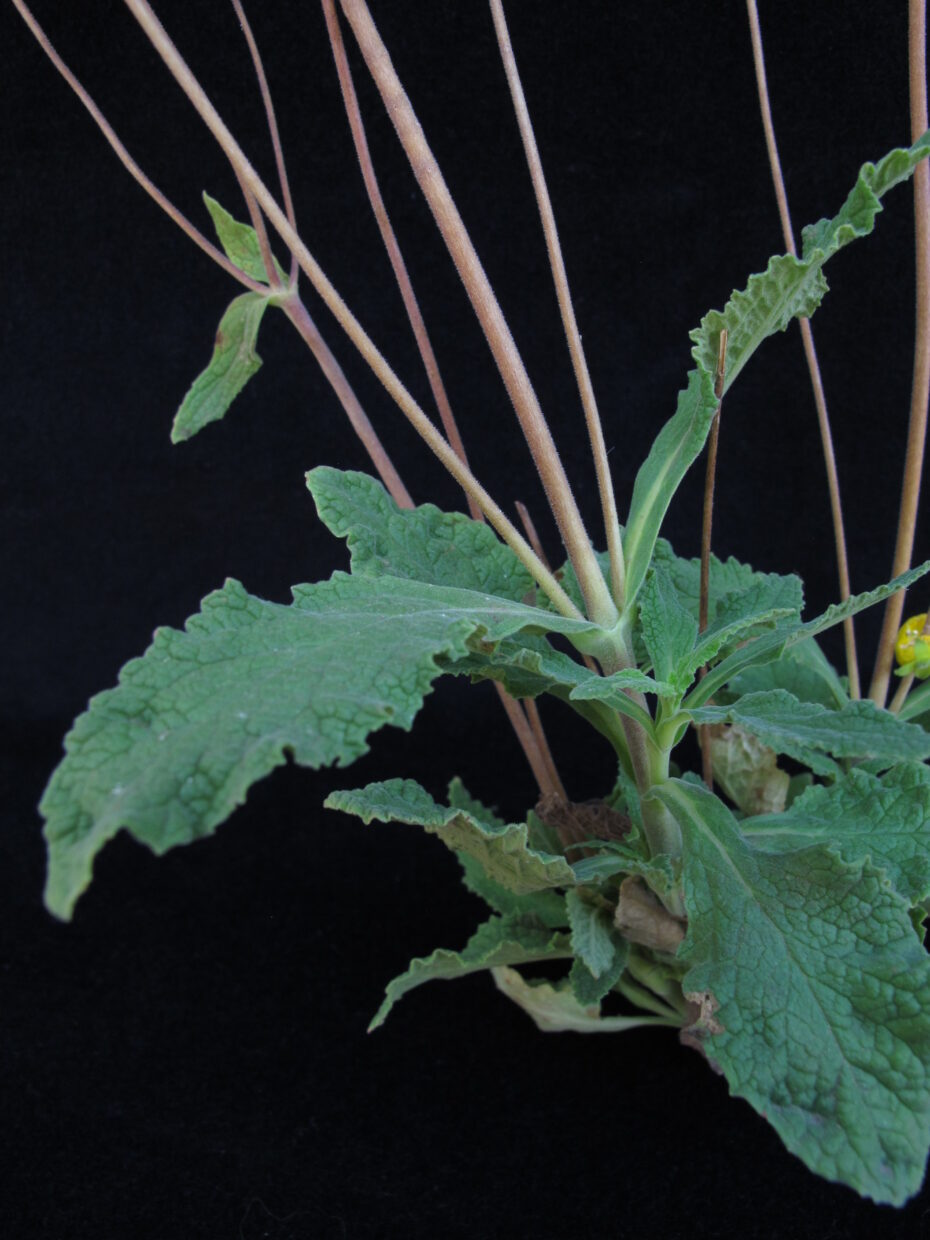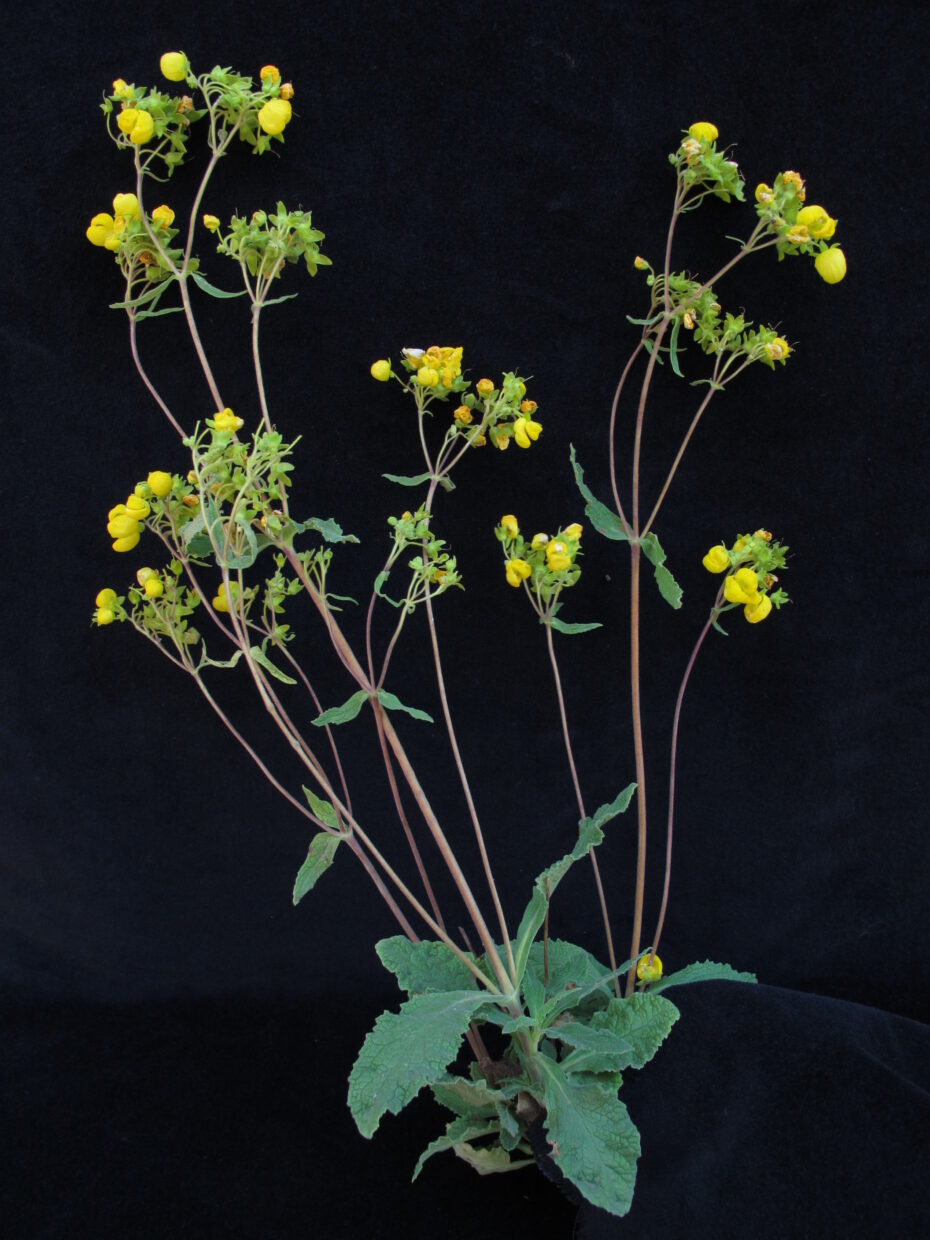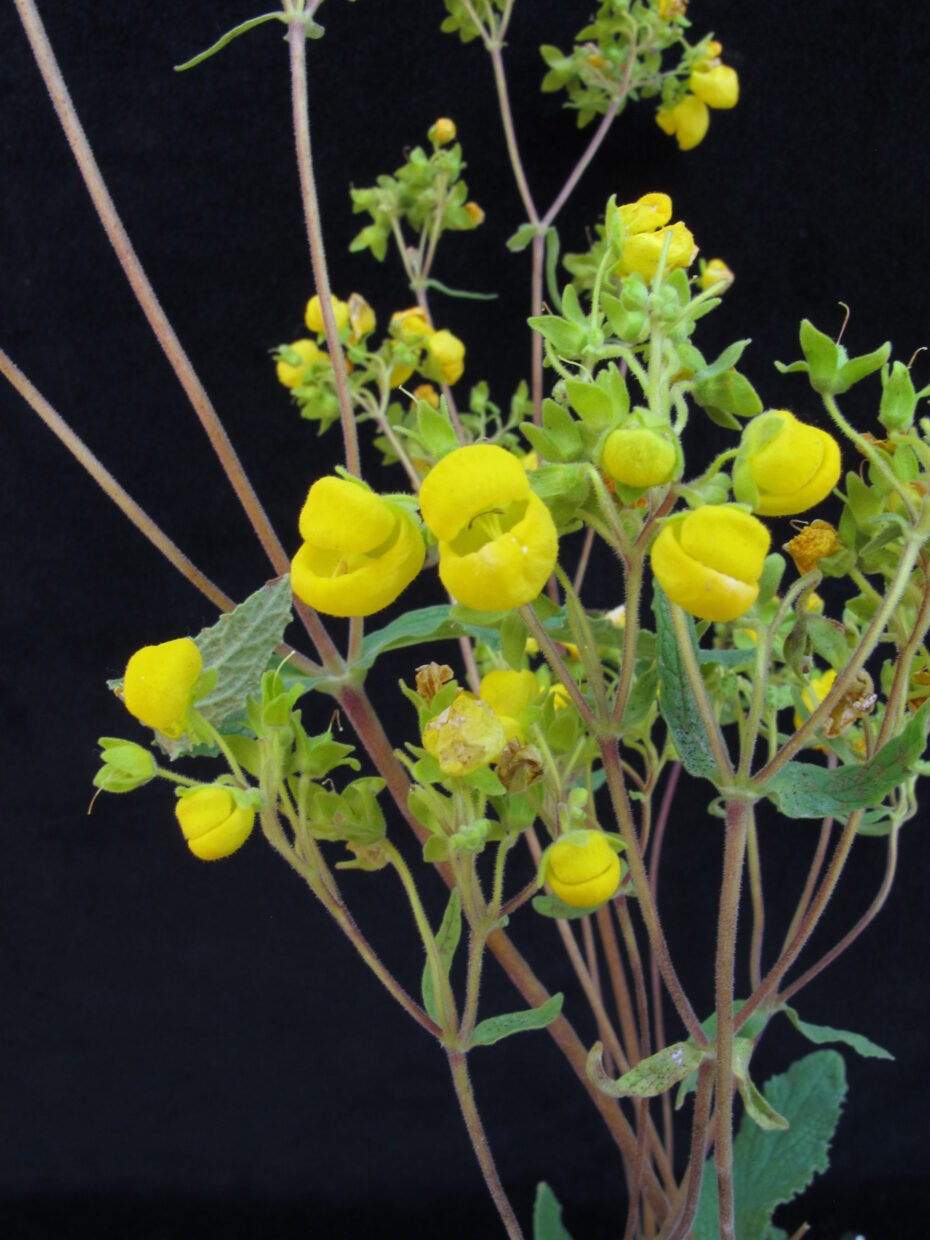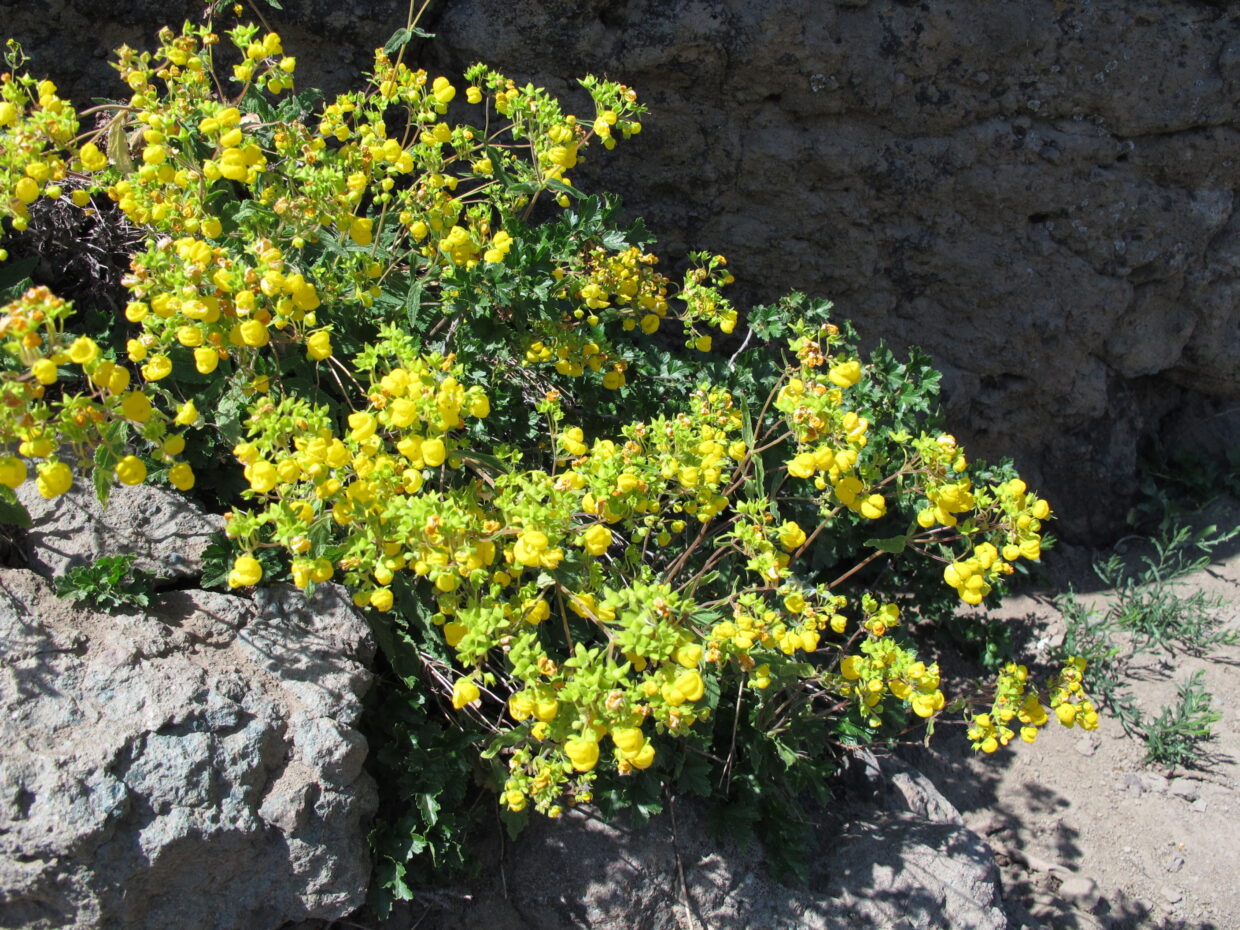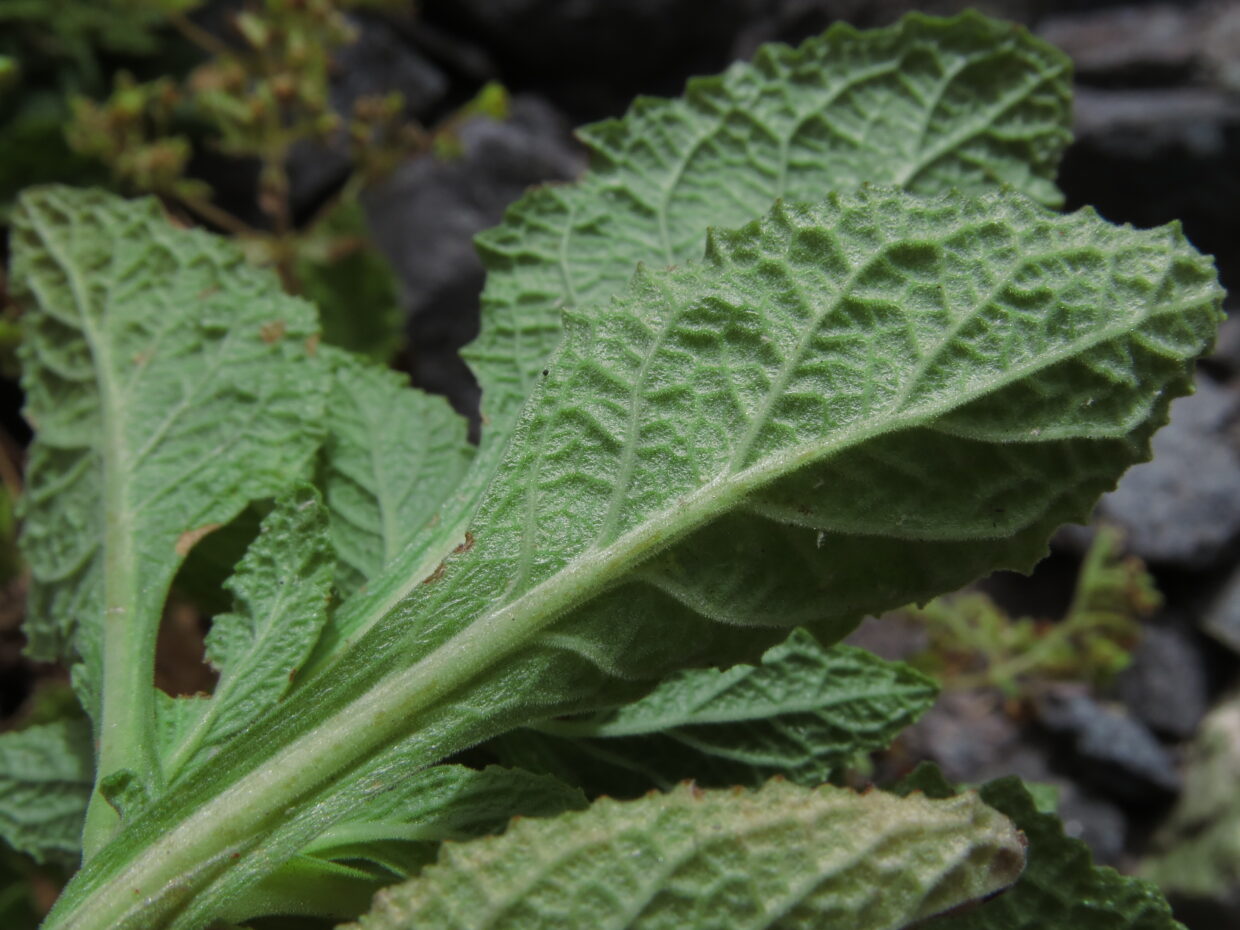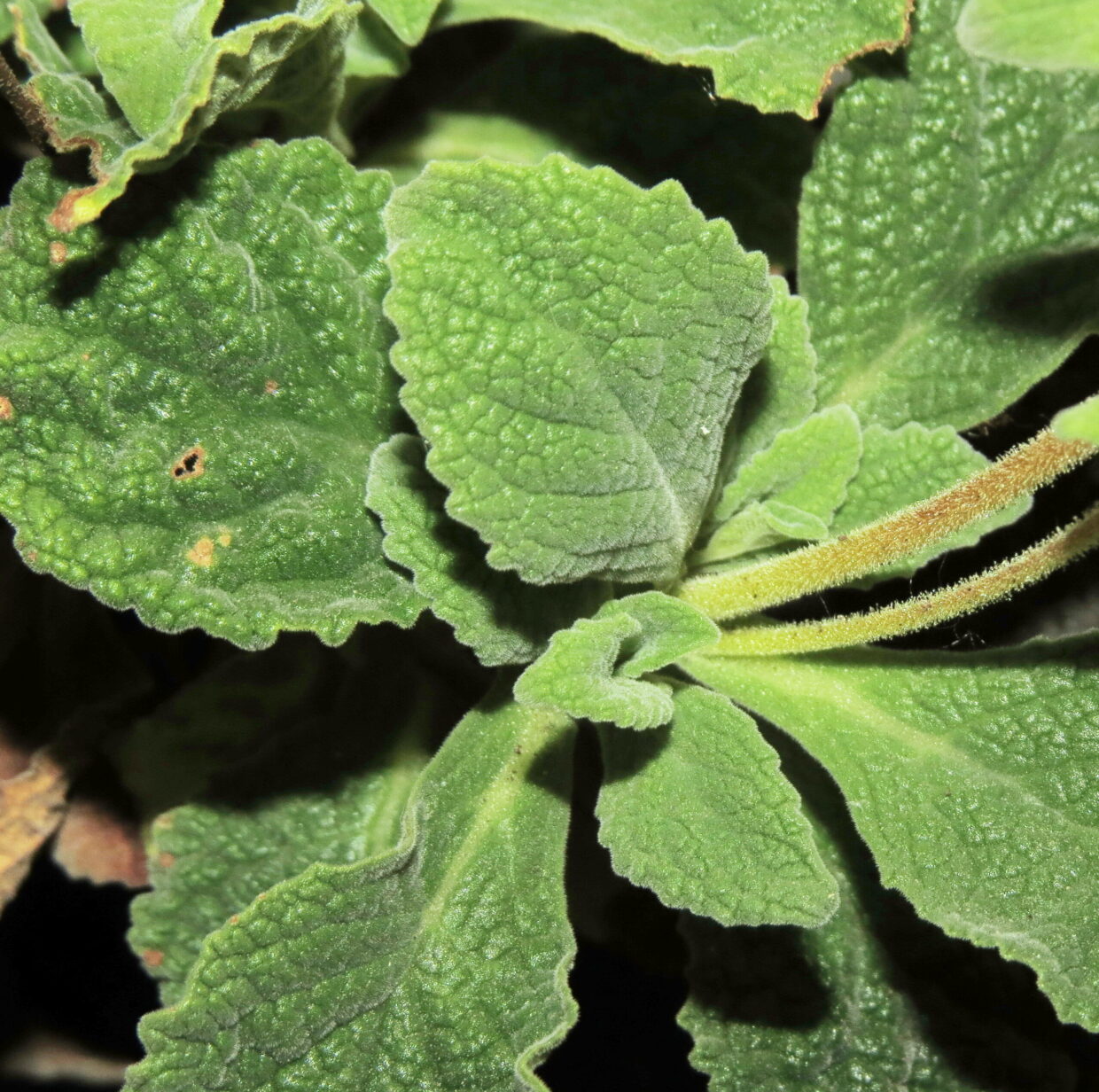Place of Publication
Prodr. [DC.] 10: 219 (1846)
Type citation
Syntypes: CHILE. V Región de Valparaíso, Prov. Colchagua, in rupestribus editioribus andium Talcaregué, II.1831 Gay [103] (P); Gay s.n. (F, K, P); Gay [1056] (P); V Región de Valparaíso, Prov. de Los Andes, Mountains of Aconcagua/ Cordillera, 1832, Bridges 95 (BM, E, K, W?); [Valparaíso, 1831, 1832?], Cuming 530 (BM, E, K, W); Cuming s.n. [probably also collection 530] (G!). Lectotype, (designated by Ehrhart 2005): Mountains of Aconcagua/Cordillera, 1832, Bridges 95 (K!; isotypes: BM, E, W?)
Synonyms
References
-
de Candolle (1846)
de Candolle, A.P. 1846. Prodromus systematis naturalis regni vegetabilis, sive enumeratio contracta ordinum, generum, specierumque plantarum hucusque cognitarum, juxta methodi naturalis normas digesta, vol. 10. Parisiis: sumptibus Sociorum Treuttel et Würtz
-
Ehrhart (2005)
Ehrhart, C 2005. The Chilen Calceolaria integrifolia a.l. species complex (Scrophulariaceae). Systematic Botany 30: 383-411
Iconography
- Ehrhart (2005): Fig. 18
Regions
Coquimbo, Valparaíso, Metropolitana, Del General Libertador Bernardo O'Higgins and Maule
Habitat
Semidesert and Semiarid Andean cordillera
Distribution and habitat
Relatively widely distributed in Subandean and Andean regions on rocky slopes between 800 and 3000 m.
Distribution
-
Calceolaria andina Benth.
-
-
Calceolaria andina Benth.
-
-
Calceolaria andina Benth.
-
-
Calceolaria andina Benth.
-
-
Calceolaria andina Benth.
-
-
Calceolaria andina Benth.
-
-
Calceolaria andina Benth.
-
-
Calceolaria andina Benth.
-
-
Calceolaria andina Benth.
-
-
Calceolaria andina Benth.
Here is #map_1 -
-
-
-
-
-
-
-
-
Descriptions
- Ehrhart (2005)
Habit
Subshrub 10–50 cm tall
Key characteristics
Calceolaria andina can be distinguished from the other species of the C. integrifolia group by being dwarf subshrubs and when growing on rocky slopes, they rarely reach more than 30 cm. The leaves are ovate, the base varying from attenuate to distinctly obtuse. The inflorescence is mostly quite reduced comprising one or two pairs of cymes, rarely three, the cymes usually with only few flowers (Ehrhart, 2005).
Notes
Seed of this species is banked by the national seed bank of Chile, INIA.




